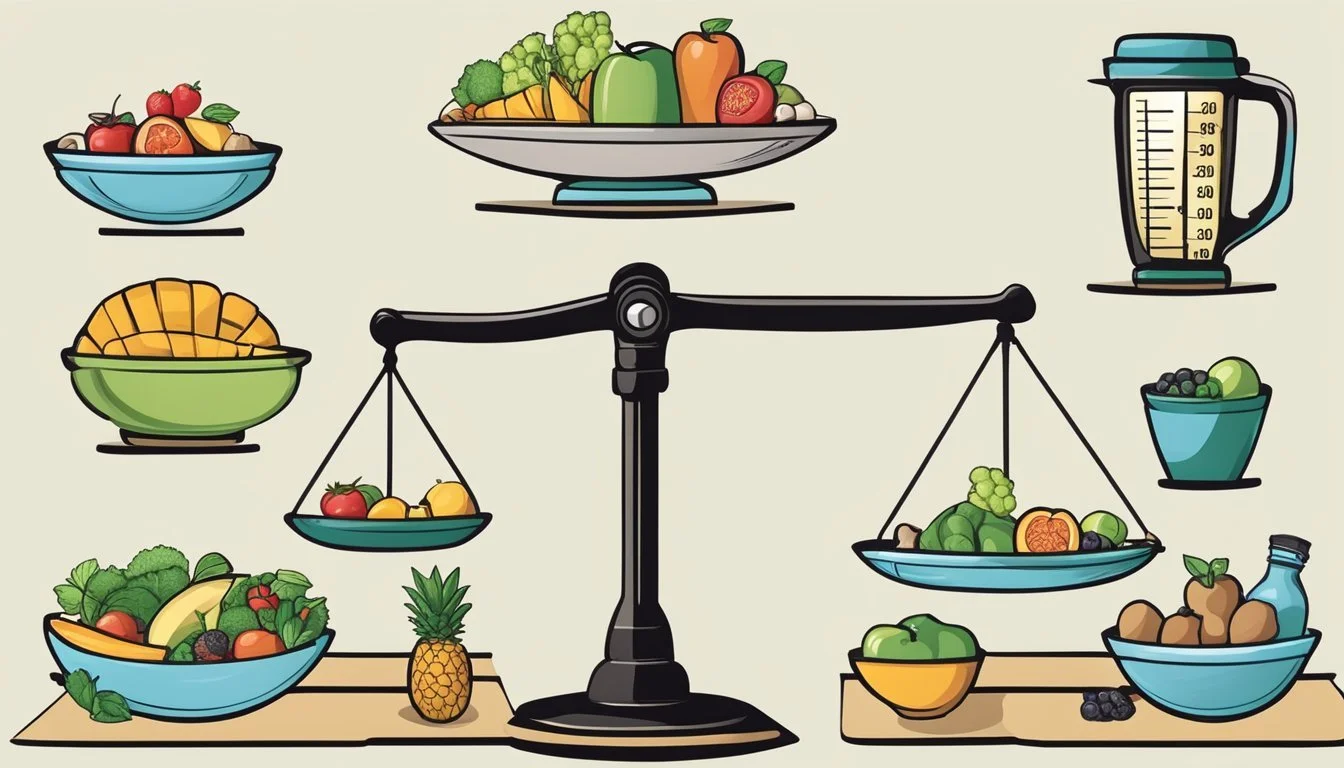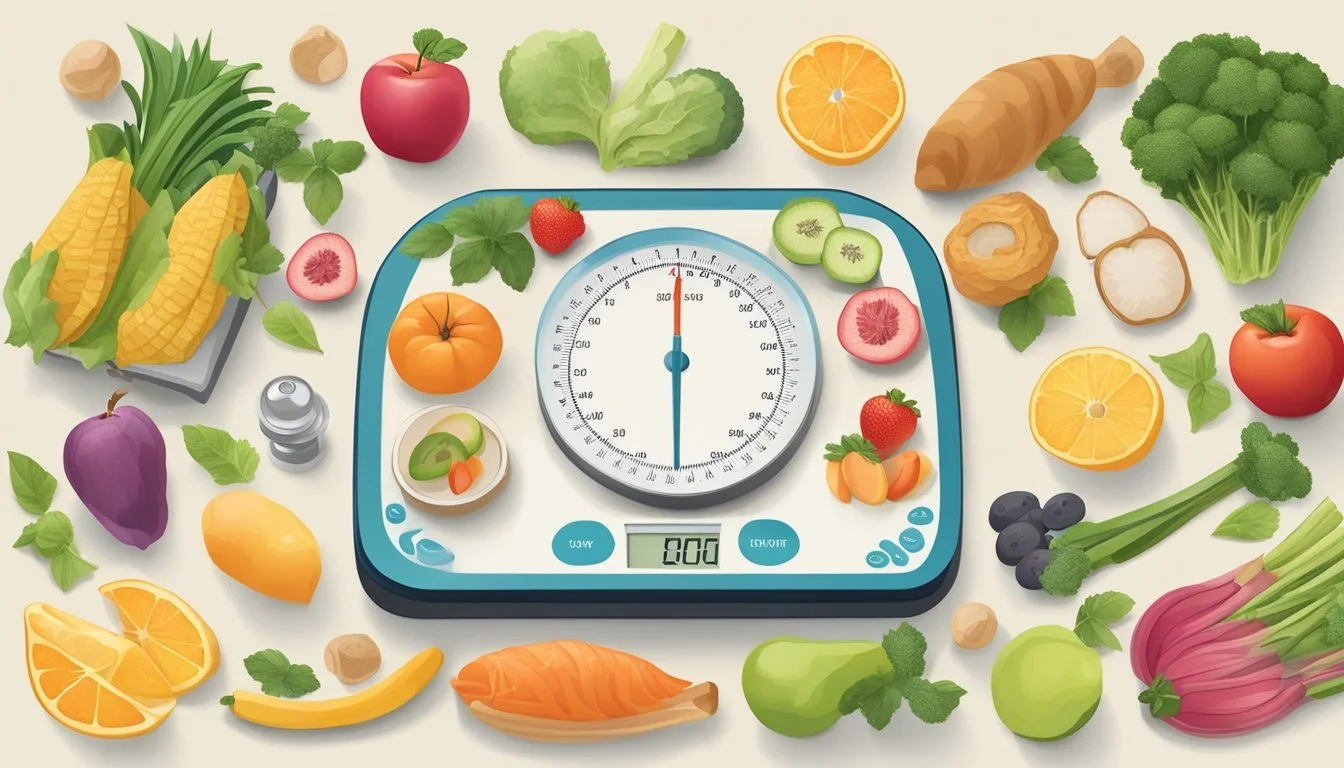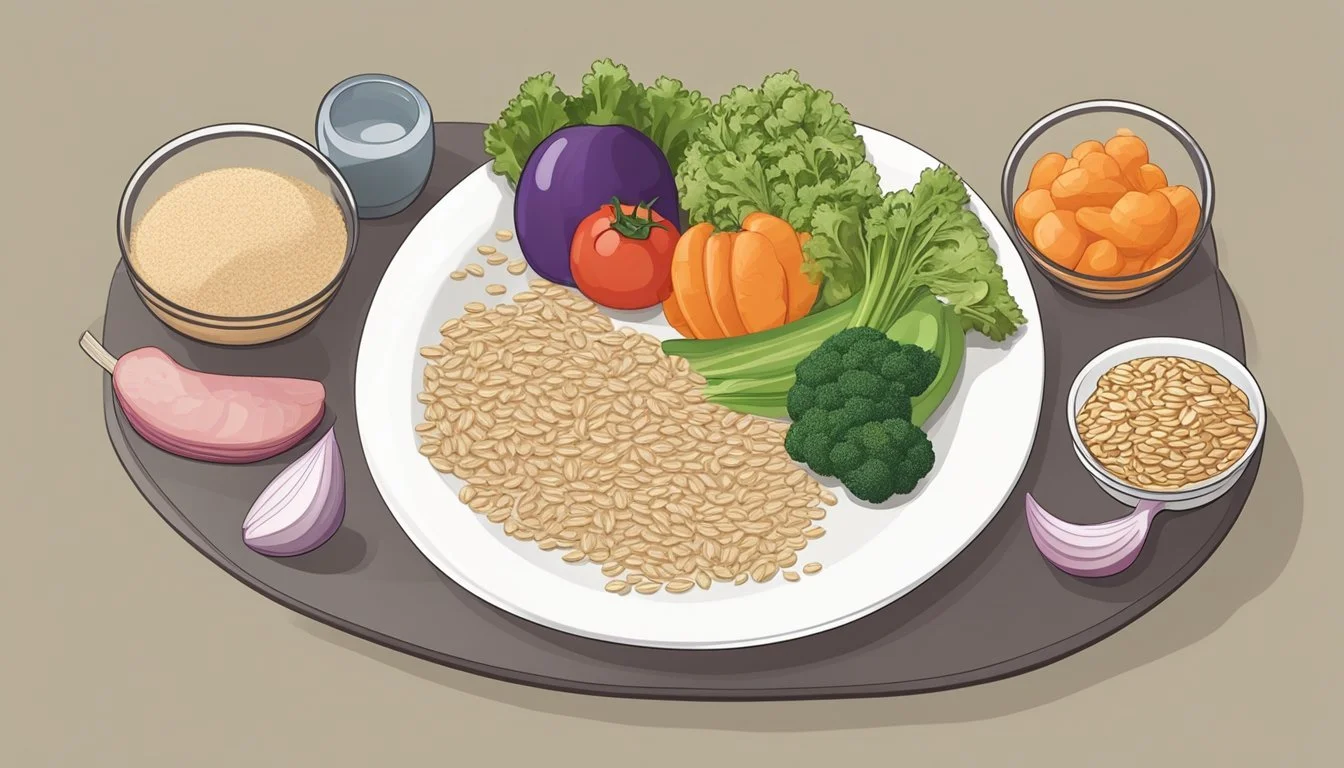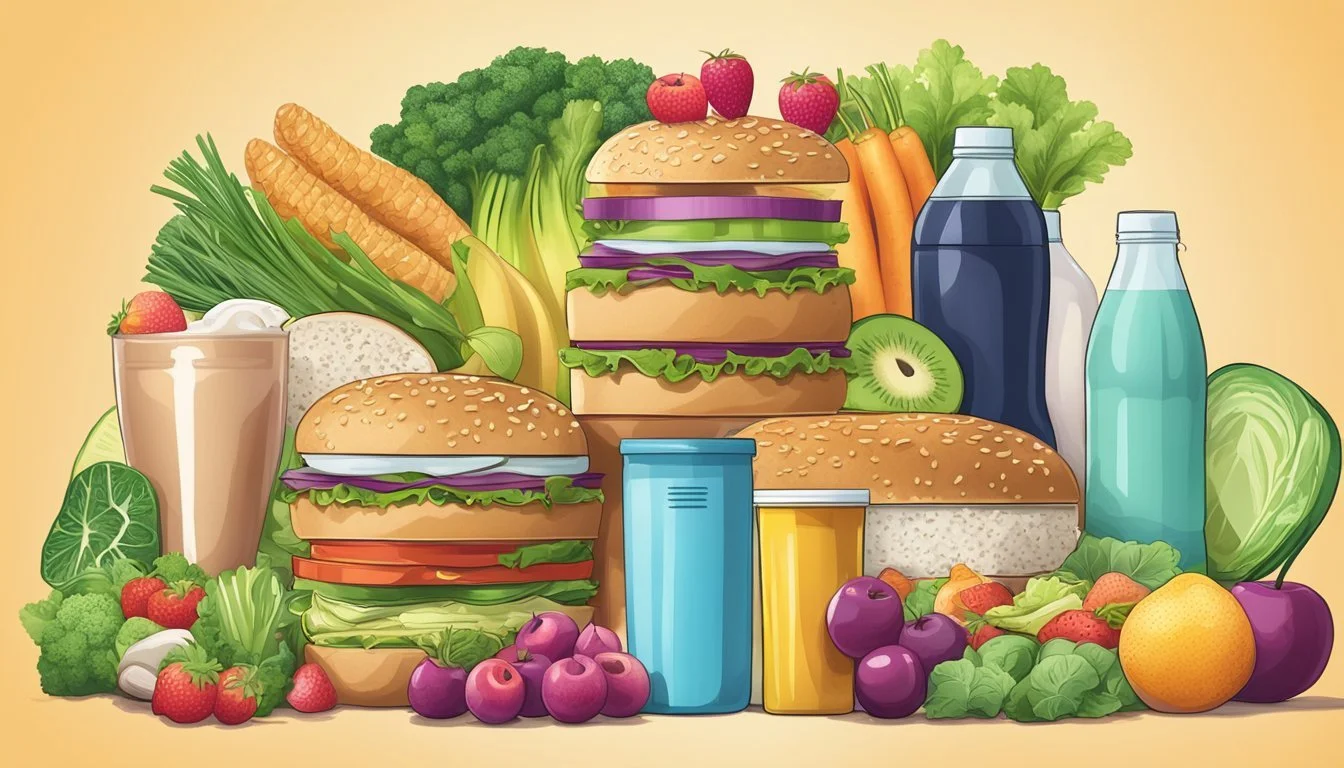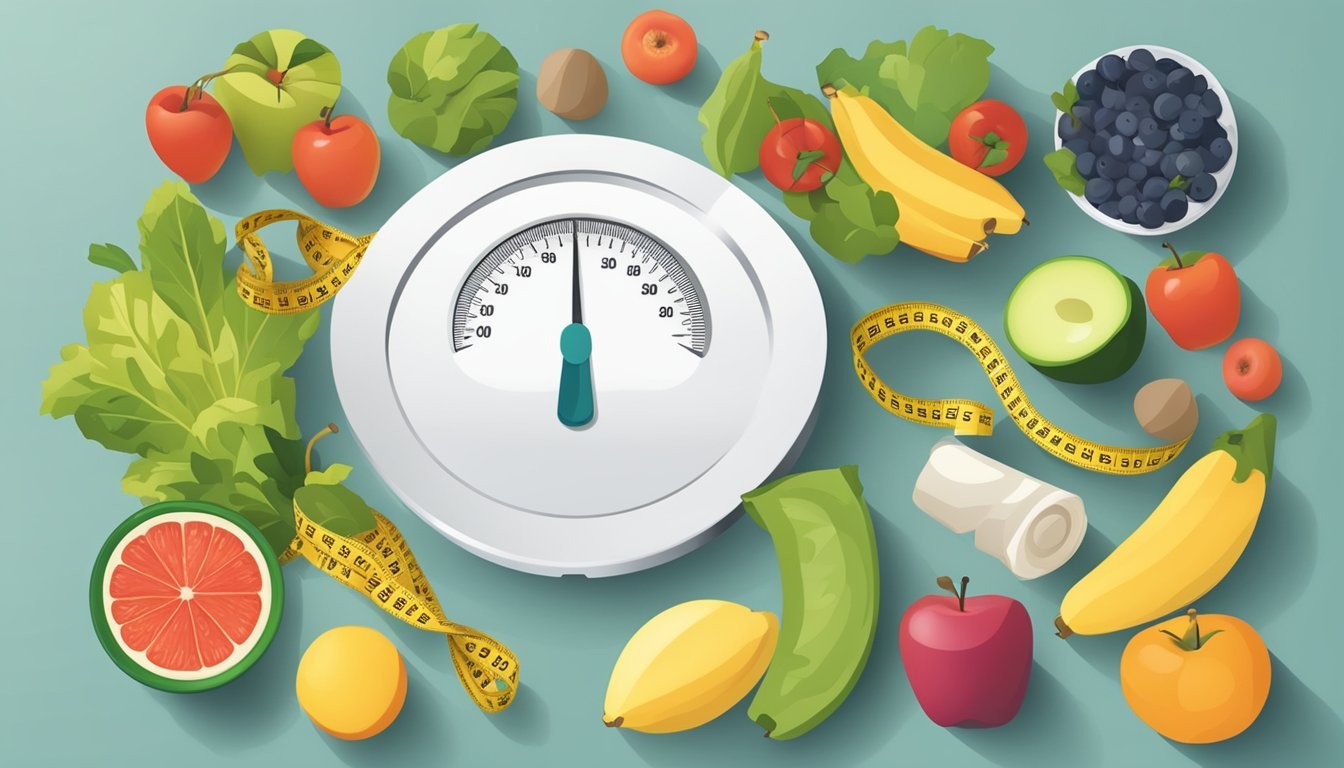The Truth About the Dukan Diet
Evaluating the Safety and Sustainability of This Weight Loss Strategy
The Dukan Diet has garnered attention as a popular weight-loss method that focuses on a high-protein, low-carbohydrate eating plan. Developed by French physician Pierre Dukan, it promises significant weight loss and aims to change eating habits for long-term stabilization. The regimen involves four distinct phases: the Attack phase, which kickstarts the process with a strict protein-only menu; the Cruise phase, which introduces vegetables; the Consolidation phase for gradually reintroducing a broader range of foods; and the Stabilization phase, which is designed to maintain the weight loss over the long term.
Critics and supporters alike have debated the safety and sustainability of the Dukan Diet. Some praise its structured approach and claim it can lead to rapid weight loss, especially in the initial stages, while others raise concerns about potential nutritional imbalances and the challenges of maintaining such a restrictive diet over time. Health experts often stress the importance of considering individual health needs and lifestyle factors when assessing the viability of any weight loss plan.
As the Dukan Diet restricts certain food groups, particularly during its early phases, questions arise regarding its overall health impact. It's crucial for those considering this diet to be aware of how it may align with their health goals and whether it can be adapted into a well-rounded approach to eating and weight management. Proponents argue that the diet's final phase, which no longer restricts any food but emphasizes protein one day a week, aims to prevent the yo-yo effect commonly associated with extreme diets. However, it's advisable to consult with healthcare professionals before embarking on this or any weight loss program.
Origins and Philosophy
The Dukan Diet, conceived by French physician Pierre Dukan, promotes high-protein consumption as its central tenet for achieving weight loss. This approach is anchored in the belief that protein is essential for a healthy, sustainable diet.
Origins and Founder: Pierre Dukan
Pierre Dukan, a French doctor, developed the Dukan Diet after being inspired by an obese patient's willingness to forgo all food except for meat to lose weight. His insights led to a comprehensive weight-loss plan that centers on protein as a key macro-nutrient for shedding pounds and maintaining a healthy physique. The Dukan Diet gained prominence in France before gaining a wider following internationally.
Underlying Principles of Dukan Diet
The Dukan Diet revolves around four key phases, each with a specific goal and set of guidelines. The philosophy hinges on the high consumption of lean protein, as protein is thought to be more satiating and to increase metabolic rate during digestion. The diet's guiding principles include:
Unlimited lean protein: Emphasizes the consumption of lean meats, fish, and dairy, which are rich in protein and essential for muscle health.
Oat bran: An integral part of the diet; oat bran is recommended daily due to its high fiber content, aiding in satiety and digestion.
Water intake: Advocates for significant water consumption to facilitate metabolic processes and hydration.
Daily exercise: A daily 20-minute walk is encouraged to complement the dietary aspects of the plan.
The diet's foundation rests on the belief that a high-protein, low-carbohydrate approach can lead to rapid weight loss by encouraging the body to burn fats instead of carbohydrates for energy, thereby enhancing overall health and well-being.
How the Dukan Diet Works
The Dukan Diet is structured into four distinct phases, each with its own rules and food lists. Its design is to promote weight loss and maintain it in the long term through high protein and low carbohydrate consumption.
The Four Phases of the Dukan Diet
The diet's framework consists of four phases: the Attack, Cruise, Consolidation, and Stabilization phases. Each phase serves a specific purpose in the weight loss journey and transitions individuals from quick loss to long-term maintenance.
Attack Phase: Kickstarting Weight Loss
During the Attack phase, individuals consume a diet extremely rich in lean proteins for 1-7 days. The aim is to jumpstart weight loss with a strict menu that includes 68 high-protein foods and encourages the body to rapidly drop weight.
Cruise Phase: Gradual Weight Reduction
The Cruise phase introduces 32 specific vegetables, alternating with the protein-heavy days of the Attack phase. This phase is designed for gradual weight reduction and continues until the individual reaches their target weight.
Consolidation Phase: Preventing Weight Regain
The Consolidation phase is designed to prevent weight regain. It slowly reintroduces previously restricted foods. Individuals can now have some starchy foods, fruit, cheese, and two 'celebration' meals per week, while sticking to the core protein and vegetable strategy.
Stabilization Phase: Long-Term Maintenance
Finally, the Stabilization phase is an indefinite phase focused on long-term maintenance. It allows all foods while recommending a single day each week of all-protein consumption, as in the Attack phase, and emphasizes the importance of daily physical activity, ideally a 20-minute walk.
Dukan Diet Guidelines
The Dukan Diet focuses on high protein intake and reduced carbohydrate consumption, incorporating specific foods and practices to promote weight loss.
Foods to Eat and Avoid
Foods to Eat:
Lean proteins: Includes lean beef, pork, poultry, fish, and eggs.
Non-starchy vegetables: To be consumed from the second phase onwards, these vegetables help to provide fiber and essential nutrients.
Foods to Avoid:
High-fat foods and proteins.
Starchy vegetables and high-carbohydrate foods, especially in the initial phases.
Role of Oat Bran
Oat bran is integral to the Dukan Diet, recommended due to its high fiber content which aids in digestion and provides a feeling of fullness. Dieters are advised to consume oat bran daily as follows:
Attack Phase: 1.5 tablespoons
Cruise Phase: 2 tablespoons
Consolidation Phase: 2.5 tablespoons
Stabilization Phase: 3 tablespoons
Hydration and Water Intake
Hydration is emphasized, with a rule of consuming at least 1.5 liters of water daily. Water supports metabolism and helps flush out the by-products of fat breakdown. It is crucial throughout all phases of the Dukan Diet.
Nutritional Considerations
The Dukan Diet places a strong emphasis on high protein consumption while limiting other key nutrients by restricting certain food groups, particularly in its early phases.
Protein-Centric Nutritional Profile
The Dukan Diet prioritizes protein as its central dietary component, encouraging dieters to consume a high amount of lean meat, fish, and eggs. This protein-focused approach aims to support satiety and muscle preservation during weight loss. The diet’s structure includes an "Attack" phase which is very high in protein and extremely low in carbohydrates, followed by phases that gradually reintroduce some vegetables and other foods.
Proteins: Lean meats, fish, poultry, eggs
Vegetables: Limited to non-starchy varieties in the "Cruise" phase
Fats and Carbs: Severely restricted, especially during the initial phases
The high intake of lean protein is designed to help reduce hunger, potentially making calorie restriction more manageable. However, the heavy reliance on proteins can lead to an imbalance where fats and carbohydrates, which also play crucial roles in the body, are not sufficiently consumed.
Potential Nutrient Deficiencies
Due to its restrictive nature, the Dukan Diet may lead to nutrient deficiencies, primarily during its "Attack" and "Cruise" phases where the intake of fats, fiber, and some carbohydrates are limited. Even though non-starchy vegetables are phased back into the diet, the limited variety and quantity might not provide adequate fiber or a full spectrum of vitamins and minerals typically found in a more diverse diet.
Fiber: Consuming a variety of vegetables and whole grains typically ensures adequate fiber intake; however, these are limited in the Dukan Diet, especially in the initial phases.
Fat: Essential fatty acids, necessary for brain health and cell function, may be inadequate due to restrictions on fatty foods.
Carbs: While non-essential, carbohydrates are a primary energy source, and limiting them could impact energy levels and overall health.
Due to these potential deficiencies, individuals considering the Dukan Diet may benefit from the guidance of a healthcare provider or a registered dietitian to ensure they meet all their nutritional needs while following the plan.
Advantages of the Dukan Diet
The Dukan Diet offers distinct advantages for individuals looking for a structured approach to weight loss. It emphasizes protein consumption, which plays a key role in weight reduction and appetite control.
Rapid Weight Loss Potential
The Dukan Diet is known for its ability to help people lose weight rapidly, especially during its initial phases. This can be highly motivating for individuals who wish to see quick results. The diet's high-protein, low-carbohydrate approach is geared towards quick water loss and fat reduction, possibly helping individuals reach their true weight—a concept central to the Dukan philosophy that refers to a realistic, maintainable target weight.
Satiety and Hunger Management
Due to the high intake of proteins, followers of the Dukan Diet often experience an increased sense of fullness, which can reduce overall food intake. Proteins are more satiating than carbohydrates and fats, thus helping to manage hunger effectively. This can decrease the likelihood of snacking and overeating, contributing to a healthy weight management journey.
Critics and Controversies
The Dukan Diet has faced significant scrutiny from health professionals regarding its long-term viability and health implications, raising concerns over the diet's structure and potential risks.
Criticism from Health Professionals
Many health professionals dispute the efficacy and safety of the Dukan Diet, emphasizing its restrictive nature. Research indicates that high-protein, low-carbohydrate diets like the Dukan may thrust the body into ketosis, which can be effective for weight loss in the short term but may pose health risks if sustained for a prolonged period. Moreover, registered dietitians (RDs) often point out that the diet's stringent rules can lead to nutritional deficiencies.
Key points raised by health experts include:
Limited intake of fruits, vegetables, and whole grains may lead to a deficit in essential vitamins and minerals.
The high focus on protein can strain the kidneys and may exacerbate pre-existing kidney conditions.
The lack of long-term studies makes it difficult to assess the potential risks and benefits accurately.
Sustainability and Long-Term Effects
The sustainability of the Dukan Diet is a crucial concern for both health professionals and dieters. Its highly restrictive nature raises questions about individuals' ability to adhere to the diet over time without experiencing disordered eating patterns.
Concerns regarding long-term effects include:
Potential for weight regain due to the difficulty of maintaining such restrictive eating habits.
Possible negative impact on relationship with food, promoting an all-or-nothing attitude towards eating.
The diet's phases, particularly the 'Attack' phase, are designed for rapid weight loss, which may not be maintainable in the long term. As a result, some individuals may find the Dukan Diet unsustainable, leading to a cycle of yo-yo dieting.
Practical Aspects of Following the Dukan Diet
The Dukan Diet emphasizes high protein intake and exercise as fundamental components for weight loss. Careful meal planning and an understanding of the diet's unique concepts are essential for anyone considering this weight loss method.
Meal Planning and Preparation
A strict meal plan is central to the Dukan Diet, with a focus on lean protein and a selection of vegetables phased in gradually. Initially, individuals must consume almost exclusively protein-rich foods, expanding to include vegetables during the second phase. Here is an example of what a typical day's meal plan might look like:
Phase 1: Attack Phase
Breakfast: Omelet made with egg whites
Lunch: Grilled chicken breast
Dinner: Steamed fish fillet
Phase 2: Cruise Phase
Breakfast: Omelet with added spinach
Lunch: Turkey slices with a side of green salad
Dinner: Beef steak with steamed asparagus
Meal preparation in the Dukan Diet involves focusing on lean meats, fish, and eventually a variety of vegetables, with little to no use of oils or fats.
Understanding the True Weight Concept
The Dukan Diet introduces the concept of "true weight" — a realistic, attainable weight-loss goal based on personal history and weight stability. This is calculated considering several factors, including age, weight loss history, and previous diets. The true weight determines the duration of the phases and the approach to achieving sustainable weight loss. Understanding one's true weight is crucial to following the Dukan Diet correctly.
Exercise Recommendations
Exercise is a compulsory element of the Dukan Diet. Individuals are encouraged to undertake at least 20 minutes of walking daily during the initial phase which should be maintained or increased throughout the progression of the diet. The diet asserts that consistent, moderate exercise, especially walking, complements the high-protein meal plan to effectively lose weight and maintain muscle mass.
Comparing to Other Diets
When evaluating weight loss plans, it's important to consider how they stack up against each other. The Dukan Diet, known for its high protein, low carbohydrate approach, contrasts with other popular diets in several key aspects, specifically its structure and the role of carbohydrates.
Dukan Diet vs. Atkins Diet
The Dukan Diet and the Atkins Diet both emphasize protein and restrict carbohydrates. However, while the Dukan Diet maintains a strict low-carb approach throughout its four phases, the Atkins Diet starts with a low-carb phase and gradually increases the intake of carbohydrates as it progresses. Here's a breakdown of their key differences:
Aspect Dukan Diet Atkins Diet Initial Phase High protein, extremely low carb High protein, very low carb Maintenance Increases variety but keeps carbs low Increases carbs, focuses on balance Long Term Protein-focused, no general carb increase Tailored carb intake based on individual's metabolism
The Atkins Diet provides more flexibility in carbohydrate reintroduction, making it slightly less restrictive in the long run compared to the strict low-carb protocol of the Dukan Diet.
Dukan Diet vs. Ketogenic Diet
The Dukan Diet and the Ketogenic Diet (often referred to as keto) are likewise similar in their restriction of carbs, but they differ fundamentally in their approach to fats.
Aspect Dukan Diet Ketogenic Diet Primary Focus Protein is the star, with fat as a sidenote High fat intake for ketosis Carbohydrates Low throughout all phases Extremely low to maintain ketosis
While both diets aim to induce a state of ketosis initially, where the body burns fat for fuel in the absence of carbohydrates, the Dukan Diet does not emphasize high-fat consumption. Instead, it targets a high protein intake, potentially offering less dietary fat than the Ketogenic Diet, which relies on fat as the main energy source.
By understanding these comparisons, individuals can make informed decisions about which diet may be more suitable for their lifestyle and weight loss goals.
Potential Risks and Side Effects
This section examines the potential adverse effects of the Dukan Diet on kidney and liver health, as well as the risk of nutritional deficiencies associated with its dietary restrictions.
Impact on Kidney and Liver Health
Kidney Health: The Dukan Diet's high protein content puts additional strain on the kidneys, as they have to work harder to eliminate the byproducts of protein metabolism. This increased workload can exacerbate existing kidney conditions and potentially lead to new ones, especially in individuals with a predisposition to kidney issues.
Liver Health: Similarly, a sudden upsurge in protein can also burden the liver. Over time, adherence to such a diet without adequate fiber and carbohydrates may elevate the risk of developing liver disease.
Risk of Nutritional Deficiencies
Essential Nutrients: The Dukan Diet, being restrictive in carbs and fats, might lead to an insufficient intake of essential fatty acids and fat-soluble vitamins. This imbalance can potentially lead to fatigue and other health issues.
Nutritional Deficiencies Potential Side Effects Vitamins and Minerals Immune weakness, anemia Fiber Constipation, digestive distress
Constipation and Fatigue: Restricting certain food groups not only limits nutritional variety but may also cause constipation due to low fiber intake. Moreover, a lack of complex carbohydrates can result in energy depletion, manifesting as fatigue.
Success Stories and Testimonials
The Dukan Diet has a myriad of success stories that exemplify its potential for weight loss. Individuals report varying degrees of success, showcasing the diet's ability to assist in weight reduction. For instance, one testimonial mentions Jennifer D., who purportedly lost 135 pounds. Her story, like many others, emphasizes the personal achievement and lifestyle changes associated with the diet.
Key Highlights from Success Stories:
Weight Reduction: Users frequently share their weight loss milestones, some citing figures as substantial as over 50 pounds.
Diet Phases: Testimonials often describe progress through the diet's distinct phases, particularly the 'Cruise' phase where a variety of vegetables are introduced.
Motivation Boost: Individuals find encouragement in the diet's structure and reported quick results, which often fuels their motivation.
Weekly Progress Insights:
Week 1: Users may start seeing initial weight loss during the first week of the 'Cruise' phase.
Week 2: Continued adherence to the diet may result in additional, more significant weight loss.
It is important to recognize that these testimonials come from individuals with unique bodies and lifestyles, thus results may vary. While the Dukan Diet promises substantial weight loss, each experience reflects a personal journey with the diet, influenced by adherence to the prescribed phases and individual metabolism.
Reflecting on these testimonials, it is clear that for some, the Dukan Diet has been a tool for notable weight loss journeys. Despite these positive anecdotes, it's advisable to approach the diet with caution and seek medical guidance to ensure safety and sustainability.
Conclusion and Final Thoughts
The Dukan Diet, a high-protein, low-carbohydrate approach, emphasizes four distinct phases for weight reduction. While numerous individuals can experience rapid weight loss, it’s important to examine the sustainability and health effects of this regimen.
Sustainability: Varying individual experiences suggest that while some may find the diet easy to follow due to its structured nature, others may struggle with the restrictive food choices in the long term. Incorporating a variety of foods post-diet to maintain weight loss without returning to old eating habits is crucial.
Health Considerations: The increase in protein intake can aid in satiety and muscle maintenance; however, critics argue that the diet may fall short in providing a balanced array of nutrients. Potential risks such as kidney strain, nutritional deficiencies, and other health concerns should be considered, especially for individuals with pre-existing health conditions.
It's essential for a person considering the Dukan Diet to consult with healthcare professionals to ensure it aligns with their health needs and goals. While the Dukan Diet has success stories, it is imperative to approach it with caution and awareness of its potential implications.
In conclusion, successful weight management typically involves a balance of diet, exercise, and lifestyle modifications. Therefore, any dietary plan, including the Dukan Diet, should be evaluated on its ability to be integrated into one's life cohesively and healthily.

